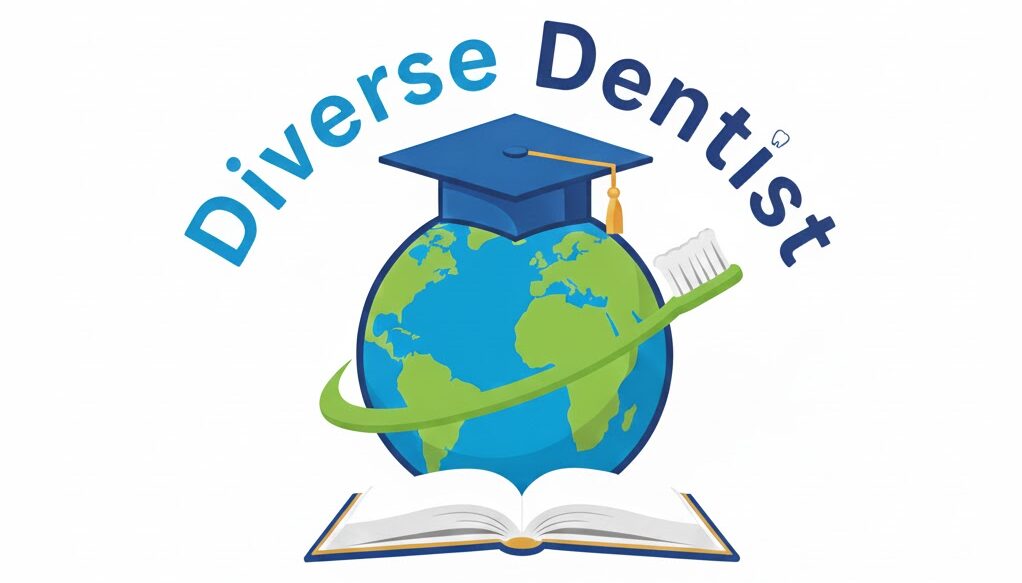The citizenship and visa requirements for applying to dental programs through CAAPID (Centralized Application for Advanced Placement for International Dentists) vary depending on the dental schools you’re applying to, as each program sets its own policies regarding international applicants. However, here’s an overview of what to expect regarding citizenship and visa requirements when using CAAPID:
1. Citizenship Status
While filling out your CAAPID application, you will be asked to provide details about your citizenship status. The categories you may need to provide information on include:
- U.S. Citizen: Applicants who are citizens of the United States.
- Permanent Resident: Applicants who hold a U.S. Permanent Resident Card (Green Card). Permanent residents are often treated similarly to U.S. citizens by most dental programs.
- International Applicant: This category is for applicants who are not U.S. citizens or permanent residents and are on a visa or seeking a visa to study in the U.S.
- DACA (Deferred Action for Childhood Arrivals): Some schools accept DACA applicants, although this varies by institution.
2. Visa Requirements for International Applicants
If you are an international applicant and not a U.S. citizen or permanent resident, you will likely require a visa to study in the U.S. The most common visas for dental students are:
- F-1 Student Visa: This is the most common visa for international students pursuing higher education in the U.S. The F-1 visa allows you to remain in the U.S. while enrolled as a full-time student in a program. After graduation, F-1 visa holders can apply for Optional Practical Training (OPT), allowing them to work in the U.S. for a limited time (typically 12 months, or longer for certain STEM fields).
- J-1 Visa: Some programs may allow students to apply under the J-1 Exchange Visitor Visa. This visa is used for individuals participating in educational or cultural exchange programs. Like the F-1, the J-1 may allow for limited employment under Academic Training after completing the program.
3. Program-Specific Visa and Citizenship Requirements
Each advanced standing dental program may have its own eligibility criteria regarding the types of applicants they accept based on citizenship or visa status. These variations can include:
- Eligibility for International Students: Some programs accept international applicants who are not U.S. citizens or permanent residents and will assist in providing the necessary visa documentation (I-20 form) for F-1 visa applicants.
- U.S. Citizenship or Permanent Residency Requirement: Some programs only accept U.S. citizens or permanent residents. These programs are typically designed for applicants who already have legal status in the U.S. and are not equipped to sponsor student visas for international applicants.
- DACA Applicants: Some programs will accept applicants who are under DACA, while others may not.
It’s essential to check the specific requirements of each program you’re interested in applying to. These requirements will be clearly outlined on each program’s admissions page or on CAAPID.
4. Applying Through CAAPID
- Indicate Your Status: In the CAAPID application, you’ll need to specify your citizenship and visa status. This information helps the dental programs determine your eligibility.
- Supporting Documentation: Depending on your status, you may need to provide additional documentation, such as a copy of your U.S. permanent resident card, visa status, or other legal residency documents.
- School-Specific Rules: Some schools may require specific forms or documentation for international students, including proof of financial support, which is necessary for issuing the I-20 form for an F-1 visa application.
5. Financial Considerations for International Students
If you’re applying as an international student, you may need to demonstrate that you have sufficient funds to cover tuition and living expenses while studying in the U.S. This is required as part of the visa process for F-1 or J-1 visas. Schools may ask for:
- Proof of financial support: This could include bank statements, scholarship documentation, or sponsorship letters.
Many advanced standing programs have high tuition fees, and as an international student, you may not qualify for U.S. federal financial aid. Make sure to explore all your funding options in advance.
6. English Language Proficiency
For international applicants, proof of English language proficiency is usually required. Most dental schools will request your TOEFL (Test of English as a Foreign Language) scores to ensure you meet the program’s language requirements. The minimum TOEFL score varies by program but is typically around 90-100 on the iBT (internet-based test).
Steps to Take for International Applicants Applying via CAAPID
- Research Programs: Before applying, research each program’s citizenship and visa requirements to ensure you are eligible. Not all programs accept international applicants.
- Prepare Visa Documents: If you are an international applicant, be prepared to apply for a student visa (F-1 or J-1). This will require financial proof and admission to a program that can issue an I-20 form.
- Plan Financially: Ensure you have enough funds to cover your tuition and living expenses. International students may have limited financial aid options, so securing funding in advance is crucial.
- Check Deadlines: Some schools may have earlier deadlines or additional requirements for international applicants, so stay on top of these details when applying.
By carefully researching program requirements and ensuring that you meet the visa and citizenship guidelines of the schools you’re applying to, you’ll increase your chances of a successful application through CAAPID.
